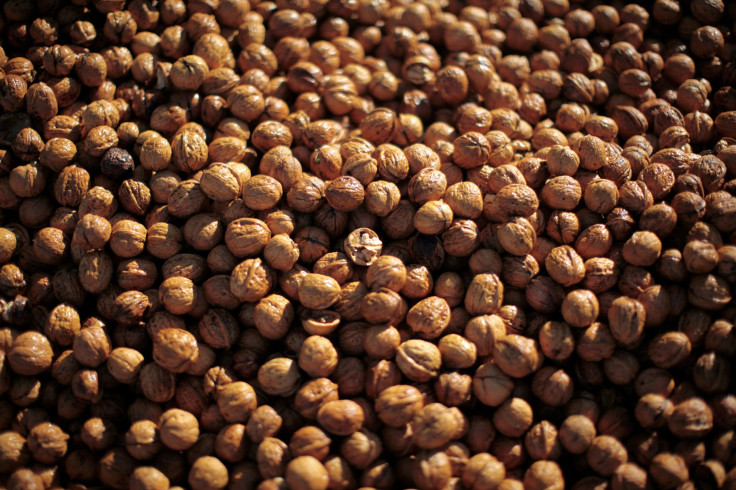Walnut Could Slow Colon Cancer Growth By Reducing Blood Supply To Tumour

Consuming a walnut-rich diet could help in slowing down the growth of cancerous tumour in the intestine, claims the new animal-based study carried out at Beth Israel Deaconess Medical Center, Harvard Medical School. The lead author of the study, Dr Christos Mantzoros, indicates that walnuts have the capacity to bring genetic changes in cancerous cells affecting the bloody supply and reducing the inflammation resulting in reduced growth rate of the tumour. The study is published in the Journal of Nutritional Biochemistry and was supported from a grant by the American Institute for Cancer Research and the California Walnut Commission.
Colorectal cancer is considered among the third-most common type of cancer to be occurring in men as well as women. Also known as colon cancer, the origin of its development lies in the colon or rectum, the parts of large intestine in the human body. The cancerous cells show abnormal growth pattern with an ability to invade the surrounding tissues and other parts of the body. The early signs of the disease include appearance of blood in stool, sudden weight loss, change in bowel movements and unexplainable fatigue. The predisposing factors of colon cancer include sedentary lifestyle, old age and certain genetic disorders. Smoking, alcohol consumption and diet also plays a vital role, along with disorders like diabetes type 2 and obesity.
The new study is the first of its kind to investigate the possible changes brought in the body about after eating walnuts. It suggests that the diet rich in walnut cause changes in the nucleotides, micro-ribonucleic acids (miRNA) which have a major role in altering the gene expression. Mantzoros says, “While future studies are needed, we're optimistic of the role of miRNAs as biomarkers of disease and prognosis, and may demonstrate a potential therapeutic target for colorectal cancer treatment."
A randomised trial was conducted in two groups of mice wherein one was fed with 2 ounces per day of walnuts, i.e., two serving for humans, while the second group was given a control diet which had no walnuts. Twenty-five days later, it was observed that the mice on walnut diet showed enhanced activity of miRNA which ultimately affected the cancer cell inflammation, proliferation as well as the blood supply. Also the tissues of the tumours of walnut-fed mice consisted of omega-3 fatty acids 10 times more in amount that the mice with no walnut in their diet. The reduced tumour size was due to the presence of increased percentage of omega-3 fatty acids, say researchers.
To contact the writer, email:ruchira.dhoke@gmail.com





















